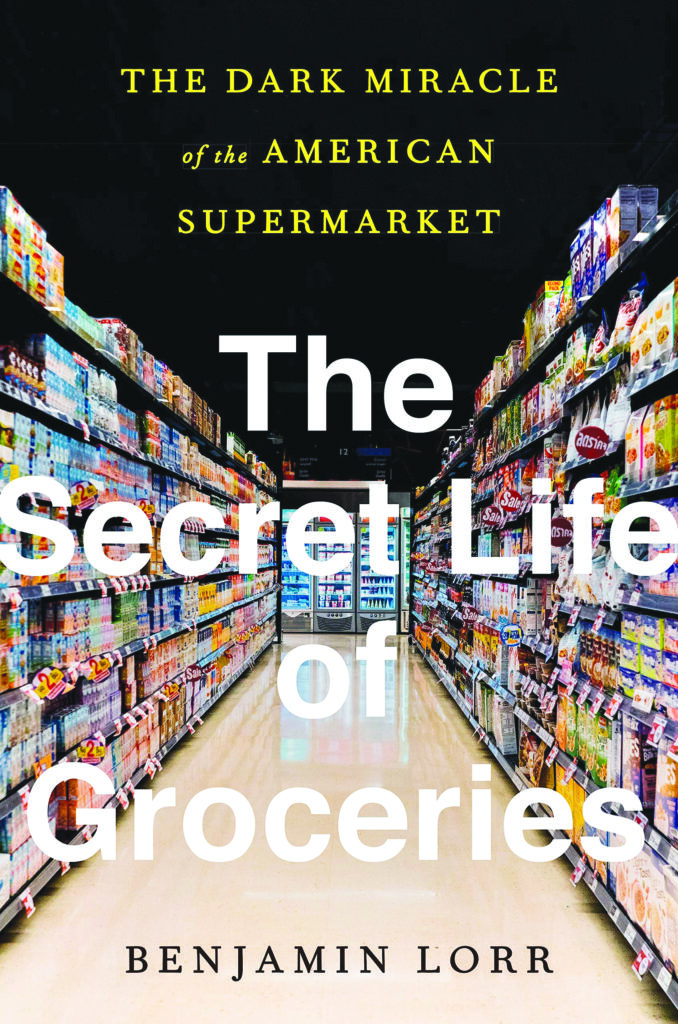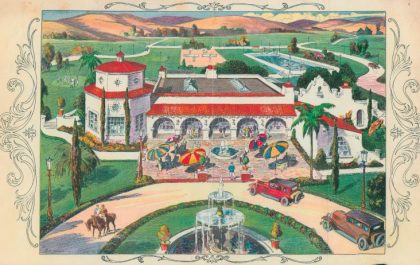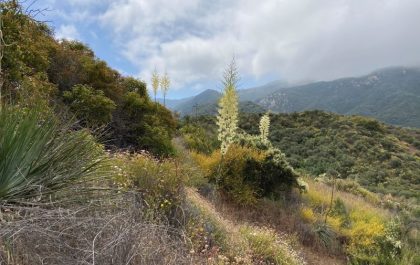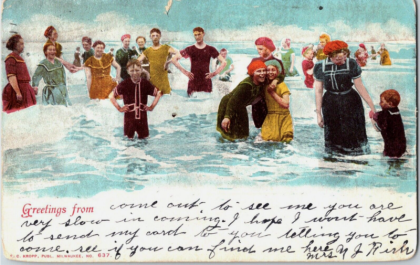
In The Secret Life of Groceries: The Dark Miracle of the American Supermarket (2020), “hands-on investigative journalist” Benjamin Lorr peels back that thin layer of self-delusion that separates almost all of us from the troubling truths of modern society. To wit, the luxury and comfort we all enjoy, no matter the laments and inconveniences of 2020, are purchased at the expense of others.
Some of the harshest complaints in Lorr’s book read like The Jungle by Upton Sinclair whose early twentieth century story about the meatpacking industry has been turning stomachs for over a century. And, while The Secret Life of Groceries is peppered with a few Jungle-like cringe-worthy moments, Lorr’s relatively new revelations pose no real threat to our physical health. Nonetheless, the gritty details that he touches upon can nauseate just the same.
Given that, I’m pretty sure you didn’t start reading this to lose your appetite. We all know better than to inquire as to how the sausage is made—which informs one of Lorr’s finer points. As Americans, we have trained ourselves to look the other way when faced with unpleasantness. Or, rather, in this case, grocery marketers have conditioned us to believe that our groceries reach us without harming the planet and that the animals that become our food do not suffer.
Many of us have actually been convinced that our purchasing decisions can improve things. By directing our dollars at this product—and avoiding that one—for the sake of our own health, and that of the environment, we have somehow magically gained a measure of control that does less to save the planet than it does to satisfy our collective conscience. Unfortunately, according to Benjamin Lorr, many of those reassuring food labels we are drawn to—like “organic” or “GMO-free” or “all-natural” or “pasture-raised” or “cage-free” –are typically subjected to a wide variety of interpretations.
As Lorr recounts, these branded and logoed proclamations are often authorized by food auditing services whose certifications of health and morality are purchased by the grocers themselves; only to make us feel better while charging more in order to delude us into thinking that we are doing our part.
“Buying something for myself,” Lorr asks, “to serve others?”
In a society obsessed with consumption, these are the types of mental tricks we deploy to sustain our lives of ungodly abundance. “The seals and certifications acting like some sort of moral shield,” Lorr preaches, “allowing those of us with disposable income to pay extra for our salvation” while the poor are “tacitly agreeing to harm the earth, pollute their children via their lunch boxes, and exploit their fellow man each time they made a purchase.”
Despite our best efforts to do the right thing, the cold reality is that just about every purchasing decision we make in the grocery store has been carefully manipulated by the Grocerial Industrial Complex. (My label, but a good one, don’t you think?)
Moving beyond the products as we encounter them in the store, much of Lorr’s attention is directed at the indignities faced by the human beings who have found themselves toiling away along the various levels of the modern American food chain.
Lorr spent four months working at a trendy natural foods store where his experiences in the seafood department get rather, well, fishy. He also spent a week sharing the road with Lynne the truck driver whose profession is the very life-blood of grocery stores.
Up until the 1980s, strong labor unions often ensured that grocery store workers and long-haul truckers were able to secure a middle-class lifestyle akin to their blue collar brethren in the factories. These jobs no longer provide this type of security.
Turnover in the trucking industry is at 100% which means that those huge machines barreling down our highways are, in large part, being piloted by inexperienced and exploited workers. Since deregulation in the 1980s, drivers have become easily replaceable and the industry has actually figured out “how to make money off their replacement.” New trucker training regimens dangle the lure of the open road; as a glamorous and free-wheeling life once portrayed in movies like Smokey and the Bandit. Unfortunately, “students” recruited to these programs often become pawns in a game that saddle them with thousands of dollars in debt. Lease-to-own deals promise independence and the chance to own your own rig. In reality, being a trucker today depressingly mimics the contracted labor of an Uber driver or, as Lorr suggests, a nineteenth century sharecropper lashed to land he does not own.
The Secret Life of Groceries is not all doom and gloom. Lorr teamed up with a vegan animal rights group and broke into a swine yard harboring 100,000 pigs in the middle of the night with the ostensible purpose of releasing the enslaved animals. He also attended the 300,000- square-foot Fancy Food Show convention where he befriended entrepreneur Julie Busha, whose energy and work ethic have put Slawsa—a cross between slaw and salsa—on a shelf near you.
Lorr also spent a great deal of time speaking with the two distant ends of the American food chain. At the top is the quintessential American grocer, Trader Joe Coulombe. His story reminds us that capitalism requires our cooperation as consumers. We have made ourselves susceptible to what Joe was so good at: coddling the retailer-shopper relationship in a way that—through our food choices—tickles our basic need to be seen as individuals.
And down there at the very bottom of the chain is Tun-Lin, a Burmese migrant enslaved for years on a Thai fishing boat. The uplifting end to Lorr’s story is that it was possible to interview Tun-Lin in the first place; rescued by an organization that fights against these sorts of abuses and now working with them to save others whose stories may live somewhere in that bag of frozen shrimp you bought last week.
If you want to learn a little more about those shrimp—whose mothers almost certainly had only one eye (female shrimps routinely have an eye removed in an absurd manifestation of capitalism in the twenty-first century), or to learn how Tun-Lin and others like him have been feeding your family, The Secret Life of Groceries is for you.
On the other hand, if you’ve had your fill of feeling helpless in a harsh and unrelenting world, you should probably avoid it. After all, as has been understood about sausage for a long, long time… knowledge is power but sometimes it can spoil your supper.











